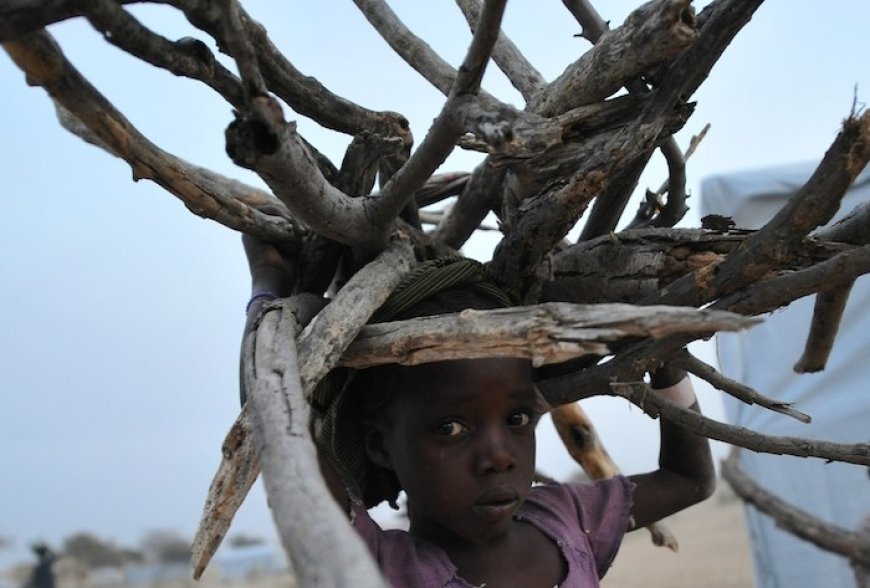Firewood exports hit N65.85bn

Amid growing demand for biomass energy sources across West Africa, Nigeria exported energy goods valued at N65.85bn in the first quarter of 2025, the National Bureau of Statistics reveals in its latest report.
The report, titled ‘Foreign Trade in Goods Statistics,’ and obtained showed that the vast majority of the exports N65.65bn were sent to other African countries.
According to the report, the Economic Community of West African States nations account for N49.15bn, or over 74 per cent of the amount.
The energy goods, categorised by the NBS as “fuel woods in logs (e.g., hardwood), charcoal, and coniferous wood in chips or particles”, are increasingly becoming sought-after commodities, particularly in Nigeria’s neighbouring countries, where alternative energy sources remain scarce or expensive.
However, the NBS report points to a troubling rise in tree felling and deforestation, with Nigeria increasingly exporting the consequences of environmental degradation through surging shipments of firewood, charcoal, and other wood-derived energy products.
According to the report, Benin Republic emerges as the top destination for Nigeria’s wood energy exports, receiving N29.83bn worth of products in the first three months of 2025.
It was followed by Togo, which imported goods valued at N19.32bn within the same period.
Beyond Africa, Asian countries imported N94.80m worth of firewood, charcoal and other derivates goods from Nigeria, while European nations took in about N102.21m.
In total, Nigeria’s energy wood exports reached four continents, underlining the growing international appetite for biomass as an alternative energy source.
In contrast, Nigeria imported only N45.77m worth of energy wood products during the same period, with N1.03m coming from African countries, N930,000bfrom the Americas, and N43.81 million from Asia.
The export boom comes at a time when the domestic use of charcoal and firewood is also surging, driven by rising cooking gas prices and unreliable electricity supply.
Across major markets in states like Niger, Ogun, Lagos and Kaduna, charcoal vendors have reported record sales as more Nigerians turn to traditional fuels for cooking and heating.
While biomass energy remains controversial due to its environmental implications, especially deforestation and carbon emissions, it continues to play a crucial role in meeting the energy needs of millions of households and small businesses across West Africa.
Meanwhile, a broader analysis of Nigeria’s trade data in Q1 2025 showed that petroleum oils and oils obtained from bituminous minerals remained the top export commodity to African and ECOWAS nations, valued at over N1.48 trillion, or 80.25 per cent of total exports to the continent.
Other leading exports included light fuel oil worth N66.32bn (3.58 per cent) and electrical energy at N65.65 billion (3.54 per cent). Within ECOWAS, the three products combined represented 84.09 per cent of Nigeria’s total exports to the region.
Nigeria’s strategic position and abundant natural resources give it a competitive edge in the biomass export market, but without sustainable forestry practices and a national policy on wood energy, the growing trade could have long-term environmental costs.
Earlier this year, stakeholders raised the alarm over the country’s biodiversity rapid decline due to land degradation, deforestation, climate change and fauna loss.
The world is facing a biodiversity crisis unprecedented in scale resulting in a “mass extinction event”.
Around one million species are threatened with extinction, many of them within a few decades.
About 75 per cent of the terrestrial environment is ‘severely altered’ and more than 85 per cent of the surfaces of wetlands have disappeared.
The world’s oceans are warmer, more acidic, more polluted and losing more oxygen than ever before, causing unprecedented damage to virtually all marine life.
Speaking at the Stakeholders Workshop on Status of Forest Reserve and Protected Areas in Nigeria, organised by the Federal Ministry of Environment and Nigerian Conservation Foundation, the ministry’s Director of Forestry, Dr Moses Ama, called for solutions that will preserve nature for future generations.
“These alarming figures are stark reminders that the world must unite and act promptly to reverse this trend as we are eroding the foundation of our economies, livelihoods, food security health and quality of life worldwide.
“If we continue the wave of natural destruction, we jeopardise our resilience to climate change and invite the resurgence of zoonotic pandemics. We must act swiftly and boldly to reverse the loss of nature and deliver urgently needed solutions to climate change and these solutions are nature-based. We are at a decisive turning point for the future of the world as we know it and our priorities must align to give our natural world a fighting chance,” he said.
Similarly, A climatologist, Mr. Nurudden Bello, has called on the Federal Government to subsidise gas and kerosene to reduce tree felling and promote cleaner energy use.
He said the high cost of cooking gas and kerosene forces many households to rely on firewood and charcoal, worsening deforestation in Northern Nigeria.
“Making gas and kerosene affordable will reduce pressure on forests and encourage households to adopt safer and cleaner energy sources,” he said.
Bello advocated for the promotion of fuel-efficient cooking stoves, especially among women in rural and urban areas as part of broader efforts to curb environmental degradation.

 admin
admin 


